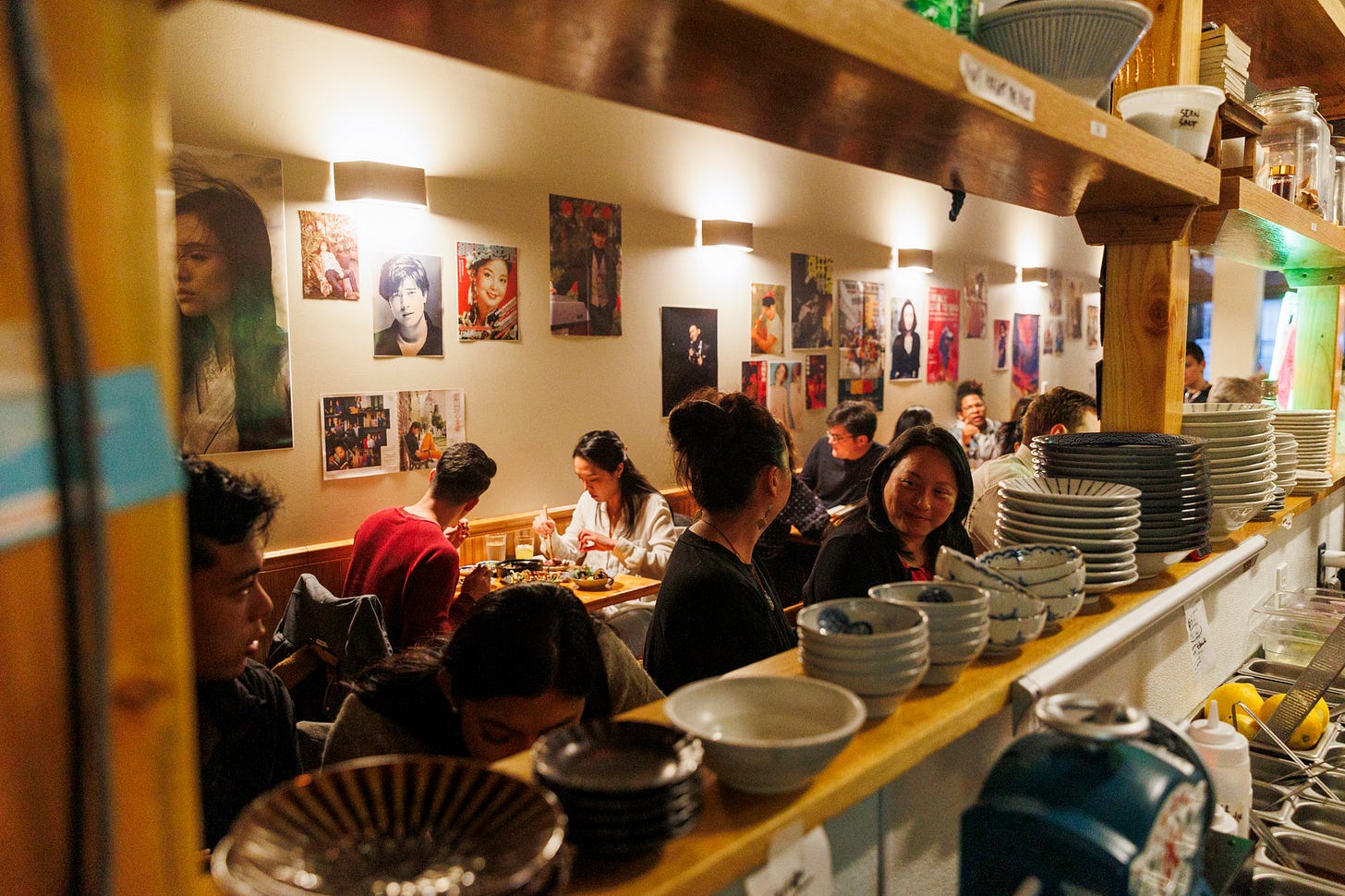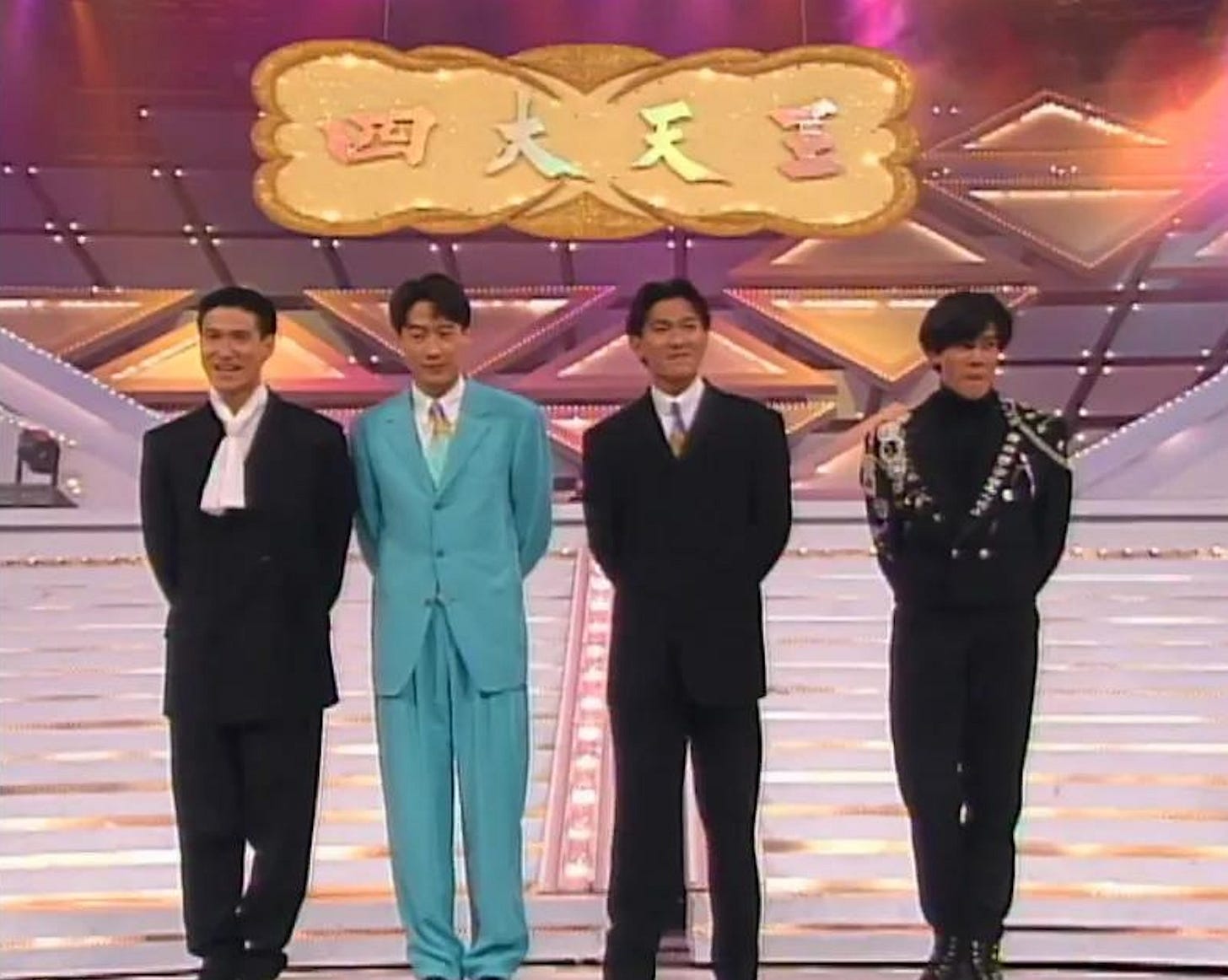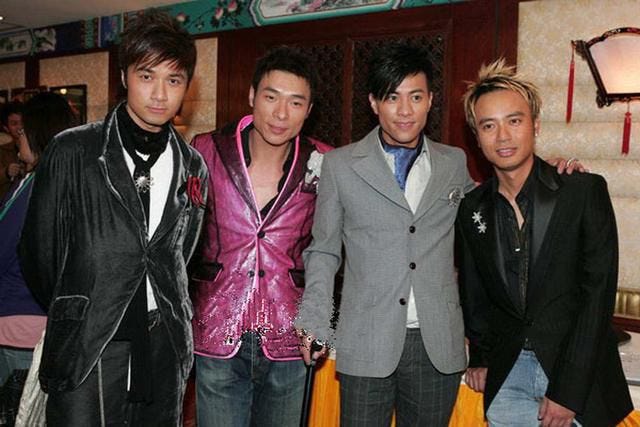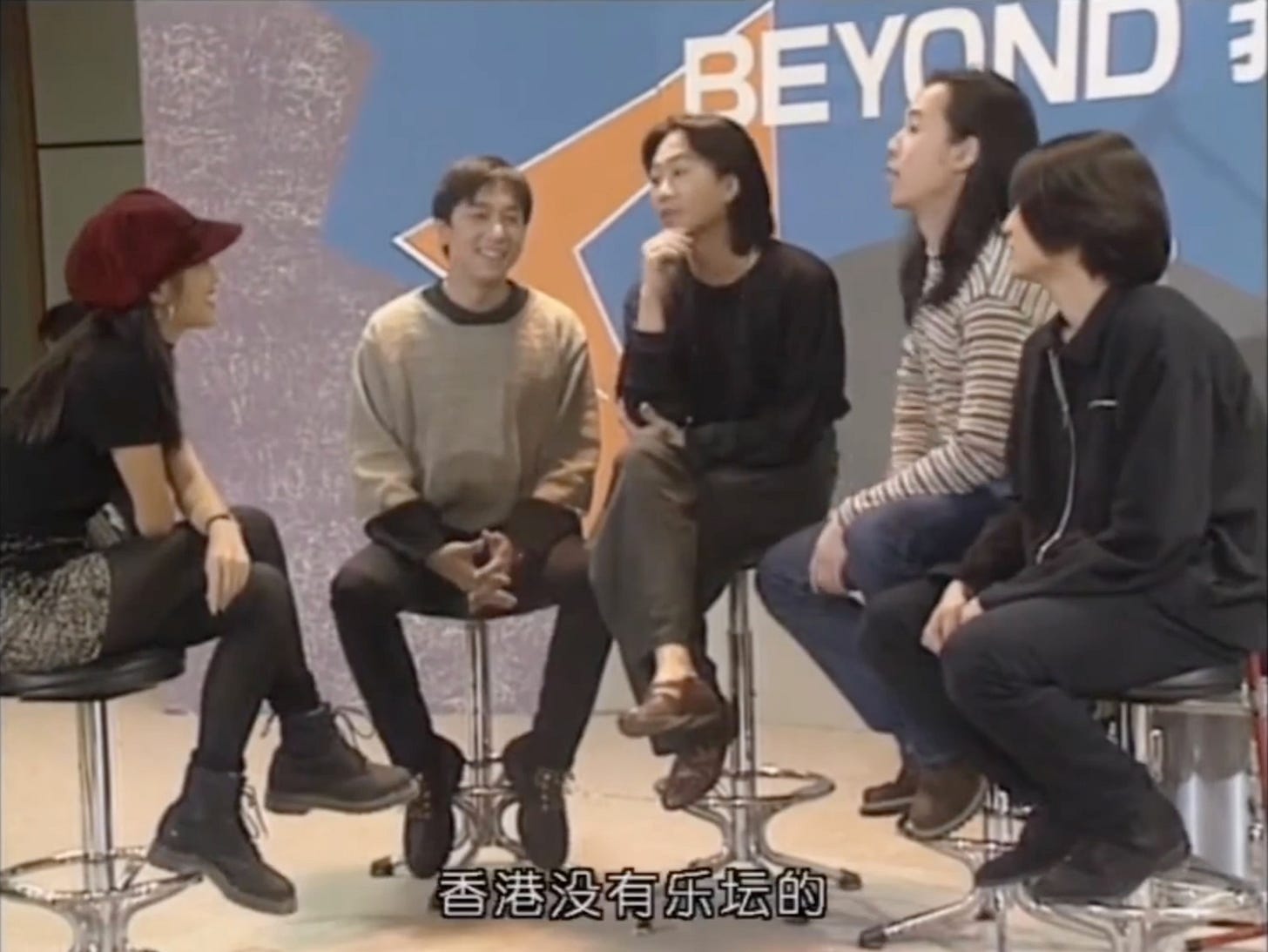Why We Never Got a Second Generation of Cantopop’s Four Heavenly Kings
A look at the poster children of 1990s Hong Kong pop culture, whose legacy still casts a long shadow
I was catching up with some friends the other day when someone brought up a new restaurant in San Francisco’s Chinatown called Four Kings. It’s been getting a lot of buzz lately—so much so that it was just added to the Michelin Guide. The name certainly wasn’t subtle, and after a quick Google search, it became clear that nostalgia was central to the restaurant’s identity: photos of the interior show walls covered in posters of Cantopop stars from decades past.

What intrigued me most wasn’t just the decor. Beyond serving what I assume is great food, the restaurant taps into something deeper—the collective memory of Cantonese entertainment’s golden age. And who better to evoke that than the Four Heavenly Kings (四大天王)? These four weren’t just any pop stars. They embodied an entire era of glamour, charisma, and fandom. It made me wonder: why did that era seem to end with them? And why hasn’t a new generation of Cantopop stars managed to recreate that same kind of magic?
The Rise of the Heavenly Kings
In the 1990s, it was impossible to talk about Chinese pop without mentioning the Four Heavenly Kings: Jacky Cheung (張學友), Andy Lau (劉德華), Leon Lai (黎明), and Aaron Kwok (郭富城). More than just singers or actors, they became the blueprint for success during Hong Kong’s entertainment peak. Although they entered the industry at different times—some in the early ’80s, others in the late ’80s—they all rose to prominence by the early ’90s, just as a perfect cultural storm was brewing.
Hong Kong had become the cultural capital of Chinese-language entertainment. Physical album sales were booming, and the idol economy had yet to fragment across regions and platforms. There was also a timely vacuum to fill, as the male singer reign of Alan Tam (譚詠麟) and Leslie Cheung (張國榮) was drawing to a close. Tam had stepped back from the spotlight, and Cheung went on hiatus in 1989.

Each of the Four Kings brought something distinct:
Jacky Cheung was the vocal powerhouse, often called the “God of Songs.”
Leon Lai had a brooding charm and a cool, reserved persona that set him apart.
Andy Lau, while perhaps not the strongest singer, stood out for his relentless work ethic and prolific film and music career.
Aaron Kwok, who had the latest start of the four, quickly became known for his high-energy choreography and showmanship.
As for where the term “Four Heavenly Kings” came from, its exact origin is still debated. Some say it was coined by the newspaper Oriental Daily News (東方日報); others trace it back to a 1992 concert hosted by broadcaster RTHK, the annual Solar Project (太陽計劃), where the four first performed together. Either way, the label caught on immediately. The media embraced this new name, and before long, the Four Kings were no longer just celebrities, but symbols of the era. Their reach extended beyond music into film, television, and advertising, helping Hong Kong’s cultural influence spread across Asia and, through cinema, even internationally.
But Where’s the Next Generation?
So, why didn’t we ever get a second generation of Heavenly Kings?
In many ways, it was because the original four became too dominant. Their popularity cast a long shadow over the industry. As media and fan culture grew more intense, public conversations frequently revolved around ranking the Four Kings—who was the best singer, who was the best-looking, who had the most star power. These comparisons became a media obsession and laid the groundwork for the rise of modern fandom in the Chinese-speaking world.
The title and being lumped together also came with a downside. It created intense pressure and fan-driven rivalries. While the media often framed their relationship as competitive, the artists themselves publicly downplayed the idea, frequently expressing admiration for one another. Over time, all four spoke openly about their discomfort with the label, describing it as limiting and ultimately unhelpful for the music scene as a whole.
Meanwhile, the overwhelming media focus on the Four Kings, often centered more on celebrity gossip than on their actual music, diverted attention from other artists. Male singers who were similarly popular, like Christopher Wong (黃凱芹) and Hacken Lee (李克勤), found themselves increasingly overshadowed. In 1993, Beyond’s frontman Wong Ka Kui (黃家駒) perfectly captured this phenomenon when he remarked during an unplugged concert interview, “Hong Kong doesn’t have a music scene,” suggesting that the city had only an entertainment industry—a pointed critique of how celebrity had overtaken artistry.
The End of An Era
The Four Kings themselves had tried to shed the title, but the term persisted in headlines and fan discussions. It wasn’t until Lai stopped attending award shows in 1999 and Cheung refused to perform under the moniker that their collective grip on the industry began to loosen. As their era faded, so too did Cantopop’s dominance.
It wasn’t a lack of talent that kept successors from emerging. Rather, the industry itself had changed.
As I explored in my first article, the late ’90s and early 2000s marked the tail end of the so-called golden age of entertainment. The music industry in Hong Kong was already in decline, and its international influence had waned. Locally, as access to music from Taiwan, Korea, Japan, and the West became easier, it was increasingly difficult for any one act to command the kind of attention the Four Kings once had.

In 2004, Alan Tam tried to revive the concept by naming Leo Ku (古巨基), Hacken Lee, Andy Hui (許志安), and Edmond Leung (梁漢文), as the “New Four Heavenly Kings.” But the cultural moment had passed. The public no longer bought into the same kind of myth-making. The industry had splintered across media platforms and fans. With the rise of early internet culture, forums like Hong Kong Discuss, instant messaging apps like ICQ, and personal fansites, audiences and fanbases became more fragmented than ever.
This fragmentation may explain why we’ve never seen successors of the same magnitude. As internet culture took off in the 2000s, attention spans scattered, and the era of monolithic stardom began to fade. In today’s landscape of viral fame and niche fandoms, it’s hard to imagine another group of stars transcending generations the way the original Heavenly Kings did.
It’s been over 30 years since the world was introduced to the Four Heavenly Kings. In the same way cultural icons like Elvis Presley, who shook his hips on American TV in 1956, or Jimi Hendrix, who gave an unconventional performance of “The Star-Spangled Banner” at Woodstock in 1969, left a lasting impression on pop culture of the West, these four singers left a similar mark on Chinese pop culture. For better or worse, their legacy continues to spark admiration and nostalgia.
The walls of Four Kings, that restaurant in Chinatown, are a reminder of this. They’re not just decorated with old posters for nostalgia’s sake—they echo a time when Hong Kong entertainment made its mark on the world through music and film. Just as K-pop dominates today’s airwaves, both domestically and internationally, there was a time when Hong Kong held that crown.



